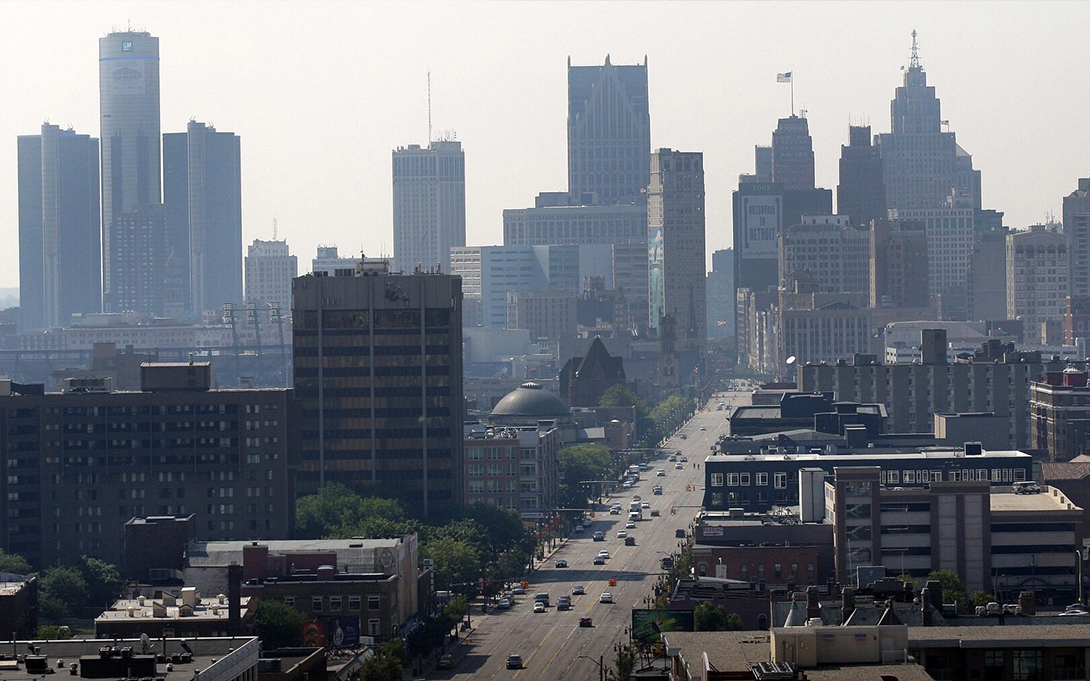
While most Detroiters intend to vote in the November midterm election, those who are uncertain about voting or unlikely to vote could be motivated to cast a ballot by a candidate's support for reparations, according to a new survey from the University of Michigan.
Young Black residents ages 18-34 were particularly likely (59%) to say a candidate's support for reparations would increase their likelihood of voting. The survey was fielded in June through August by U-M's Detroit Metro Area Communities Study. Results from the survey—which gathered responses from 2,339 Detroit residents—are weighted to reflect the population of the city of Detroit.
Based on the survey results, a new report from U-M's Center for Racial Justice examines Detroit residents' plans to vote in the midterm elections, their views of reparations for Black Americans, and how candidates' positions on reparations may affect Detroiters' voting behavior. The report defines reparations as some form of payment to Black Americans to counter the impact of slavery and discriminatory policies.
"Understanding the connections between voting behavior and support for reparations in Detroit has national implications since Michigan is one of the closely watched 'purple states.' Given our finding that candidates' support for reparations would especially motivate young Black Detroiters, support for reparations in Detroit should be of concern to voter engagement and outreach efforts," said Erykah Benson, graduate student research assistant at DMACS and CRJ and co-author of the report.
Survey results show a majority of eligible voters in Detroit (65%) intend to vote in the upcoming election, and 35% are not sure about voting or are planning not to vote. Sixty-three percent of Detroit residents support reparations for Black Americans, while 22% neither oppose nor support reparations and 13% oppose reparations.
Thirty-seven percent of Detroiters who said they would not vote in the upcoming election reported a candidate's support for reparations would make them more likely to vote. More than half of Detroiters (52%) who said they would "probably" vote said a candidate's support for reparations would make them more likely to vote. By contrast, 37% of those who will "probably" vote said a candidate's support for reparations would have no effect on their likelihood of voting, and 8% said a candidate's support for reparations will make them less likely to vote.
Young voters are particularly likely to be motivated to participate in upcoming elections by candidate support for reparations, with 49% of Detroiters between the ages of 18 and 34 saying they would be more likely to vote if a candidate voiced support for reparations.
The survey found variation across ethnoracial identities in candidate support for reparations as a factor in voter turnout. Black residents, the largest ethnoracial group in Detroit, were particularly likely to say a candidate's support for reparations would make them more likely to vote. Just under half of Black Detroiters (46%) said candidate support for reparations would make them more likely to vote. Twenty-six percent of white Detroiters and 35% of Latino Detroiters also said they would be more likely to vote if a candidate supported reparations.
A majority of white (61%) and Latino (58%) Detroiters said a candidate's support for reparations would not affect their likelihood of voting. This compares with 47% of Black Detroiters who said it would not affect their likelihood of voting. Only 13% of white Detroiters, 6% of Latino Detroiters and 4% of Black Detroiters said candidates' support for reparations would make them less likely to vote.
In addition to affecting voter turnout in upcoming elections, a reparations policy may also shape which candidates voters support. The majority of Detroiters who said they will "definitely" or "probably" vote in the upcoming election said a reparations policy was an important factor in who they will support.
"Overall, the survey shows the majority of Detroiters support reparations, and candidates stand to gain more support from Detroit voters than they would potentially lose by supporting a plan for reparations. Having closer alignment between voter preferences and the policies promoted by candidates can strengthen political trust, increase voter turnout, and in the long run, reduce racial inequality," said Jasmine Simington, graduate student research assistant and co-author of the report.
This article was written by Morgan Sherburne of Michigan News.

